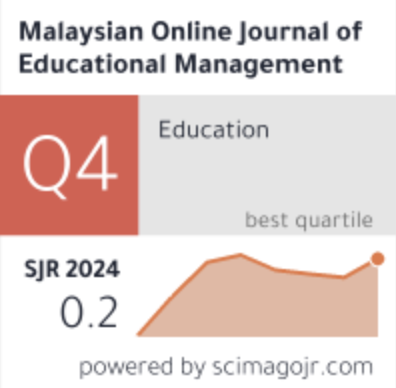EDUCATION FOR EMANCIPATION AND SUSTAINABILITY: THE ROLES OF PESANTRENS IN SOCIETAL DEVELOPMENT IN JAVA, INDONESIA
DOI:
https://doi.org/10.22452/mojem.vol5no3.1Abstract
Pesantrens are religious schools established by communities in Indonesia since 600 years ago to educate children and youth on various subjects concentrating on classical religious texts, including theology and philosophy, as well as life-pragmatic subjects such as business, vocational skills, science, and technology. The existence of pesantrens all over Indonesia demonstrate the autonomy and independence of communities in providing formal education relevant for community building and development, without the assistance and supervision from the former Dutch colonialist, federal government, or provincial government. The most crucial and influential personality in the emergence and establishment of pesantrens all over Indonesia is the religious chief scholar called kiyai who could garner respect and financial contribution within each community. Currently, there are more than 25,000 pesantrens all over Indonesia, 75% of them still very traditional while 25% are modern in their outlook, leadership, and curriculum. Based on the study in Tasikmalaya, Java, this paper highlights the roles of pesantrens in societal development of Java region and the necessary changes for them to make in order to remain acceptable and sustainable in the modern day world. This study used a multiple case study method in which data were collected by means of case observation on 24 pesantrens as well as survey checklist and interviews with 252 participants comprising kiyais, teachers, students, and community leaders. The study found, among others, that even with the onslaught of modernization, most pesantrens in Java prefer to be traditional, and pesantrens graduates are trained with multiple vocational skills and have a high spirit of self-reliance, unlike high school graduates in neighboring countries.









